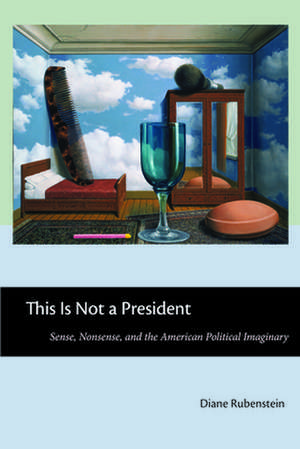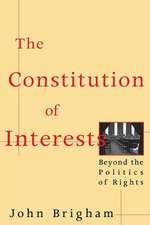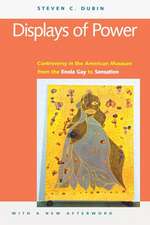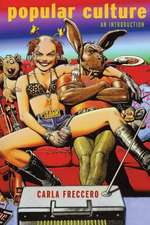This Is Not a President – Sense, Nonsense, and the American Political Imaginary
Autor Diane Rubensteinen Limba Engleză Paperback – 31 dec 2007
In a series of essays written in real time over the past four presidential administrations, Rubenstein traces the vernacular use of the American presidency (as currency, as grist for popular biography, as fictional TV material) to explore the ways in which the American presidency functions as a "transitional object" that allows the American citizen to meet or discover the president while going about her everyday life. The book argues that it is French theory--primarily Lacanian psychoanalysis and the radical semiotic theories of Jean Baudrillard--that best accounts for American political life today. Through episodes as diverse as Iran Contra, George H. W. Bush vomiting in Japan, the 1992 Republican convention, the failed nomination of Lani Guinier, and the Iraq War, This Is Not a President brilliantly situates our collective investment in American political culture.
| Toate formatele și edițiile | Preț | Express |
|---|---|---|
| Paperback (1) | 242.40 lei 6-8 săpt. | |
| MI – New York University – 31 dec 2007 | 242.40 lei 6-8 săpt. | |
| Hardback (1) | 527.06 lei 6-8 săpt. | |
| Wiley – 31 dec 2007 | 527.06 lei 6-8 săpt. |
Preț: 242.40 lei
Nou
Puncte Express: 364
Preț estimativ în valută:
46.38€ • 48.56$ • 38.38£
46.38€ • 48.56$ • 38.38£
Carte tipărită la comandă
Livrare economică 05-19 aprilie
Preluare comenzi: 021 569.72.76
Specificații
ISBN-13: 9780814776032
ISBN-10: 0814776035
Pagini: 300
Ilustrații: 8 black and white illustrations
Dimensiuni: 151 x 228 x 20 mm
Greutate: 0.43 kg
Editura: MI – New York University
ISBN-10: 0814776035
Pagini: 300
Ilustrații: 8 black and white illustrations
Dimensiuni: 151 x 228 x 20 mm
Greutate: 0.43 kg
Editura: MI – New York University
Notă biografică
Diane Rubenstein is Professor of Government and American Studies at Cornell University, and the author of What¿s Left?: The Ecole Normale Superieure and the Right.
Descriere
Focusing on those seemingly inexplicable gaps or blind spots in recent American presidential politics, the author interrogates symptomatic moments in political rhetoric, popular culture, and presidential behavior to elucidate profound and disturbing changes in the American presidency and the way it embodies a national imaginary.















